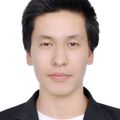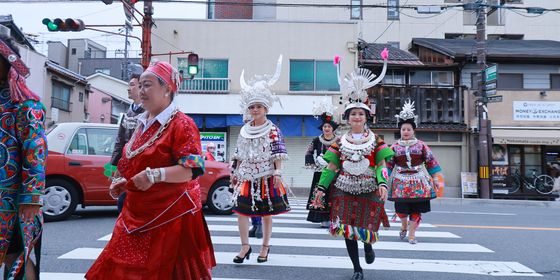Though scientist’s gene-edited babies bred outrage, eugenics has a complicated place in Chinese family planning and health care
“A child that is not born vigorous and capable is a wound to the whole world,” (无养乳虎将伤天下) or so thought Jia Yi (200-168BC), a statesman of the Western Han Dynasty, in one of the earliest essays on ante-natal education in history.
In light of the widespread shock and outrage at Shenzhen-based researcher He Jiankui’s recent announcement that he had created the world’s first genetically-edited human beings (born with a modified genome to make them HIV-resistant), Jia’s dictum might need a footnote, addressing the dangers of dabbling with a child’s DNA.
When He revealed his experiment using Clustered Regularly Interspaced Short Palindromic Repeats (CRISPR) technology, he tried to emphasize that it was in no way related to eugenics. “Enhancing IQ or selecting hair color isn’t what a loving parent does,” said the 36-year old scientist, an associate professor at the Southern University of Science and Technology, and now the subject of multiple investigations. “That should be banned.”
Despite his insistence that CRISPR surgery should be limited to therapeutic uses and a “small number of families,” He’s comments indicate he is aware of just how far the limits of genomics are already being pushed in China.
Only 20 years after Chinese researchers were allowed on the Human Genome Project, genome-sequencing has become a fully fledged middle-class consumer fad in China, driven by a relentless start-up culture that has earned the praise of overseas investors, rivals, and patients. WuXi NextCODE, a firm valued at over 3.3 billion USD, regularly flies its clients over from the US to tap into a DNA search engine that allows rare diseases to be diagnosed.
And He Jiankui himself is the chairman and founder of a DNA-sequencing company called Direct Genomics, which, in April, raised 218 million RMB in funding.
This goes a long way to explaining how He was seemingly able to carry out this experiment without tapping into the resources of his university employers, who released a statement on Monday stating that He had not been on their payroll since February, and they were unaware of his experiment, despite He’s announcement featuring their logo and linking his research lab’s university-run web page.
Legal ambiguity and government support have also played a role—while He’s experiment would not be allowed in either the US or Europe, the situation is not so clear in China. Instead of a law, the government has only ever issued a vague guideline, barring IVF clinics from “clinical experiments” that “violate ethnical or moral principles” in 2004.
In its push to become a leader in technological innovation, the government included genomics into its 14th Five-Year Plan (2016-2020) for economic and social development; China’s genetic-testing market quintupled between 2012 and 2016, now valued at around 1 trillion USD.
The study of eugenics, meanwhile, is largely free of the fears it inspires in the West, where the memory of Nazi genocide (including the extermination of those considered handicapped or ethnically impure, for example) remains fresh. In China,“eugenics” or youshengxue (优生学) bear no such sensitivities; the term literally means “study of good birth.” Granted, the Greek root-word eugenes also means “good birth,” but no reputable Western company or organization would use it for fear of the connotations. In contrast, even a quick search on WeChat renders hundreds of accounts with yousheng (优生) in their name, mostly providing health tips and courses for pregnant women.
And while the works of early Chinese eugenicists were banned as reactionary during the Cultural Revolution, after 1979, the state’s interest in birth control brought new esteem to the field. And while the Law on the Protection of Persons with Disabilities was passed in 1990, it did little to halt widespread discrimination toward the disabled; three years later, in fact, a draft law, originally titled “On Eugenics and Health Protection,” was submitted to the National People’s Congress, which aimed to “avoid new births of inferior quality and heighten the standards of the whole population,” through policies such as barring the handicapped from marrying.
The draft was nixed, but the line between eugenics and disease prevention has never been clear-cut. Visions for gene editing already go beyond the therapeutic uses claimed by He Jiankui, with Beijing-based Mega Genomics raising 24.7 million USD in late 2016 to help make “human beings more beautiful and healthier.”
Nevertheless, the outrage at He’s actions has been vocal in China. While overseas reports have focused on the scientists’s violation of bioethics and lack of transparency, several essays published by Chinese blogging platforms have alternative takes. One, by blogger Modunan, which broke the 100,000 view mark on WeChat, expounded a far-fetched argument that He’s actions could inadvertently lead to the creation of a new species of human, using shots from sci-fi B-movies to illustrate. Sina published a commentary, using plastic surgery as its yardstick, arguing that the real issue is that any faulty genes in He’s babies can be passed down, while other physical alterations cannot. Another platform used the dystopian novel Brave New World to comment on the implications for humanity.
All this hasn’t dissuaded He in the least. Anticipating the whirlwind of accusations, He has hit back, saying, “I believe families need this technology, and I’m willing to take criticism for them.” Yet, as long as billionaire backers are willing to fund genome-sequencing (rather than special schools, for example), and the state is unwilling to regulate an industry evolving at breakneck speed, there is potentially no limit on how far this “need” will be allowed to go.











